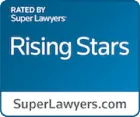Tallahassee Employment Attorney

If you are a Florida employee, you have rights. State and federal laws provide protection for workers when they are subject to mistreatment in the workplace, discrimination, or a hostile work environment. But if you’re facing unfair, unsafe, and possibly illegal actions in your work environment, you may feel powerless to stop it.
With an experienced Tallahassee employment law attorney by your side, you have a voice. At Cruz Law Firm, P.A., our sole focus is protecting your rights as an employee and pursuing the compensation you deserve.
If you’re considering taking legal action against your employer, let us put our established legal reputation to work for you. Talk to a Tallahassee employment lawyer at Cruz Law today about these and other employment law matters.
- Denied compensation, retirement options, benefits, or company facilities because of their race.
- Subject to offensive comments or off-color jokes that target their ethnicity, sexual orientation, or religion.
- Refused leave from work due to disability or pregnancy.
- Given reduced work hours or put on less desirable work shifts because of their age.
- Passed over for promotions or new positions during company restructuring, due to a manager’s preferences for workers of a specific gender.
- Excluded from the hiring process because the employer favors other candidates based on personal preferences or characteristics that are not based on work skills.
Useful Information
Age Discrimination
Under the Age Discrimination in Employment Act (ADEA), job applicants and employees 40 years old and older cannot be discriminated against on the basis of age. Filing a claim under the ADEA can help you get your job back plus lost wages if you were fired or adversely affected because of your age.

Disability Discrimination and Failure to Accommodate
Disabled employees are protected from discrimination under the Americans with Disabilities Act (ADA). Examples of disability discrimination include a worker being subjected to a hostile work environment, demotion, or termination because of their disabilities. Further, the ADA states that employers must make a legitimate effort to provide reasonable accommodation to disabled workers. Reasonable accommodations can include structural changes (such as wheelchair ramps), a modified work schedule, providing leave to receive medical care, or a change in duties. If an employer fails to accommodate, they could be sued.

Gender Discrimination
Gender discrimination happens when an employer makes unfair employment decisions — including hiring, pay, advancement, termination, and benefits — based on whether an employee is male, female, or other. Gender discrimination can also be classified as gender identity discrimination and sexual orientation discrimination.

LGBTQIA Discrimination
According to the U.S. Supreme Court, Title VII’s prohibition on workplace sex discrimination offers protection to workers who don’t conform to traditional sex stereotypes. This means it’s unlawful for an employer to commit adverse employment actions based on sexual identity and gender expression, whether real or perceived. A Tallahassee employment lawyer can advise whether you have an LGBTQIA discrimination claim.

Pregnancy Discrimination
The Pregnancy Discrimination Act holds that your employer cannot discriminate against you if you are pregnant. If your employer refused to allow you to take leave, terminated your health benefits, or treated you differently because of your pregnancy, you are entitled to pursue a pregnancy discrimination claim.

Race Discrimination
State and federal law prohibit employers from using race, nationality, or ethnicity as a motivating factor in any employment practice. This includes current employees as well as prospective applicants. In addition, if an employee is married to or spends time with others of a specific race, the employer cannot discriminate against them.

Religious Discrimination
This involves treating an employee or job applicant unfavorably due to that person’s religious beliefs. An example is an employer assigning an employee who wears religious garb to a non-customer contact position out of actual or perceived customer bias. In addition, a worker can’t, as a condition of their employment, be forced to participate in a religious activity.
If you are experiencing discrimination on the job, contact Cruz Law for a consultation. Our Tallahassee employment litigation attorneys have years of experience helping workers successfully resolve discrimination claims.
Sexual Harassment
Sexual harassment is a classified form of gender discrimination. It can happen to men, women, and people of non-binary gender alike. Workers who are subject to sexual harassment in the workplace can suffer physically and psychologically.
Sexual harassment can take many forms, such as:
- A co-worker repeatedly flirting with you or asking you out after you have asked that person to stop.
- Someone making sex-themed insults, sexually suggestive gestures, or derogatory remarks regarding your sexual orientation.
- A manager asking you for sexual favors in exchange for career advancement.
- A co-worker making unwelcome comments about your physical appearance.
- A boss touching or brushing up against you in a sexual manner, or touching themselves in a sexual manner and making sure you or others can see them.
- Someone sending photos, texts, or emails of a sexual nature to co-workers.
For many who rely on their job as their only source of income, walking out of an uncomfortable, hostile, even humiliating work environment is not an option. This is why both state and federal laws prohibit sexual harassment.
When an employer allows harassment to go unchecked or does not take your complaint seriously, you could have a basis for a legal claim. A Tallahassee employment lawyer can review your situation to see what legal remedies you may have.
Employee Retaliation
Among your rights as an employee is protection from retaliation if you file a complaint against your employer. But not every employer, manager, or supervisor follows this protocol. Some will make an employee “pay” for speaking up about illegal conduct, hostile behavior, or discriminatory practices in their workplace. Common forms of retaliation include:
- Demotion, demerits, or pay cuts
- Unfounded negative performance reviews
- Being assigned more difficult job tasks
- Getting moved to an unreasonable schedule
- Exclusion from meetings or projects
- Harassment and threats
- Wrongful termination
If you’ve experienced retaliation, our Tallahassee employment law attorneys can explain your rights. We will advise you on the best course of legal action against a malicious employer.
Whistleblower Claims
State and federal whistleblower laws protect employees who “blow the whistle” by coming forth about safety issues on the job, an employer not maintaining compliance, or illegal activity by the company. These laws offer financial incentives for employees who report workplace non-compliance. They include:
- False Claims Act (FCA), which concerns employers who defraud the federal government
- Dodd-Frank Act, which addresses securities law violations
- Sarbanes-Oxley Act, for reporting wrongdoing by officers and directors of publicly traded companies, such as accounting fraud
- Fair Labor Standards Act (FLSA), which protects employees who speak out about wage violations
- Florida Public Whistleblower Act, which protects employees who report, in writing, violations of laws, rules, or regulations by their employers
Unfortunately, by standing up against an employer who engages in misconduct, you could be subject to adverse and illegal employment consequences, such as threats or wrongful termination. When you contact a Tallahassee employment lawyer at Cruz Law, we will guide you through the laws surrounding whistleblowing and whether you can file a claim.
Wrongful Termination
As with other states, Florida is an “at will” employment state. This means either the employer or the employee can terminate their employment relationship at any time and for almost any reason. Yet, limits do exist over when and why an employer may end the relationship.
Florida has several legal conditions for which an employee can file a wrongful termination claim against their employer. These include:
- Breach of Employment Contract – You could be able to sue if you did not violate the terms of your contract, but the employer terminated you before the contract’s end and did not pay you for the entire contract’s term.
- Discrimination – If your termination was due to your race, nationality, disability, gender, age, or another protected category, you could have a case, as the termination may have violated established anti-discrimination laws.
- Taking Medical Leave – State and federal laws such as the Family Medical and Leave Act (FMLA) offer protection for employees who must take time off work to care for themselves or for family members. Your employer could be held liable if they fired you because you took lawful medical leave.
- Retaliation – A wrongful termination could stem from a “revenge” standpoint. These include an employee being fired after reporting sexual harassment, workplace safety concerns, or a hostile work environment, as well as testifying against the employer when it’s required by law.
If you have cause to believe you were illegally fired, our Tallahassee wrongful termination lawyers will help you take steps to get your job back and to pursue compensation for the harm you’ve suffered.
Family Medical and Leave Act (FMLA) Violations
The FMLA requires employers to offer their workers up to 12 weeks of unpaid leave because of medical conditions or certain family events. Examples of allowable events under FMLA leave include:
- Birth, adoption, or placing a child in foster care
- A serious health condition that keeps an employee from performing the essential tasks of their job
- An employee’s family member having a serious health condition — including injuries sustained while on military duty — that requires the employee’s care
This leave must be provided without an employee’s job being jeopardized. An employer must return that worker to the same job they held before taking leave, or to an equivalent position that has the same pay and benefits.
However, there are cases where employers are not willing to comply with FMLA. Some employers will deny leave or make matters hard for employees who want to take leave. Others will retaliate against workers who exercise their FMLA rights by imposing an unreasonable work schedule, filing poor performance reviews that are baseless, or even terminating an employee.
If you’ve been unfairly denied FMLA leave or lost your job after requesting FMLA leave, speak with a Tallahassee FMLA lawyer with Cruz Law. We’ll review the facts of your claim and advise you on your legal options.
Severance Agreements
Although it’s not required by law, many employers offer severance agreements (also called employment separation agreements) to employees prior to terminating their employment. These agreements provide the employee with a brief continuation of salary and medical benefits, or a lump sum payment that includes an accrued bonus compensation.
But these agreements don’t always work in an employee’s favor. Besides shielding the employer from potential liability, a severance agreement could include unfair or unreasonable terms based on what you, as an employee, provided for the company. Further, a severance agreement’s language can be complex and confusing. If you gloss over or don’t understand certain key terms, you could lose what you may be owed.
The Tallahassee employment attorneys at Cruz Law have extensive knowledge of what makes a severance package fair for the departing employee. We will review the agreement thoroughly and advise you on what needs attention and can help you negotiate better terms.
legally reviewed by

Tiffany R. Cruz is the owner of Cruz Law Firm, P.A. Her practice encompasses all areas of Employment Law with a focus on sexual harassment cases, whistleblower claims...
Our core values and mission are embodied in the acronym “Cruz C.A.R.E.S.” Here’s what it stands for:
Types of Potential Compensation in Employment Disputes
Although every workplace case is different, typical compensation for employment disputes could include:

Back Pay and Front Pay

Emotional and Physical Distress

Punitive Damages

Reinstatement or Promotion

Attorney’s Fees
Contact a Tallahassee Employment Law Attorney Today
If you find yourself a victim of workplace discrimination, harassment, or other employment conflicts, you deserve to have your voice heard and to be made whole again. At Cruz Law, we are dedicated to helping Florida workers understand that they have rights, and to being their advocate when an employer compromises those rights.
Our attorneys are well-versed in the most complex Florida employment laws and federal regulations. We will help you file a claim with the appropriate government or administrative agency. As your case progresses, we will make every effort to work with the opposing parties in order to resolve your case on terms most favorable to you. And with more than 100 jury trials to our name, we are not afraid to take your matter to court to get the legal recovery you are entitled to.
We serve clients in Tallahassee, Jacksonville, and throughout the Florida Panhandle. Contact Cruz Law today for a consultation to discuss your case with us.






